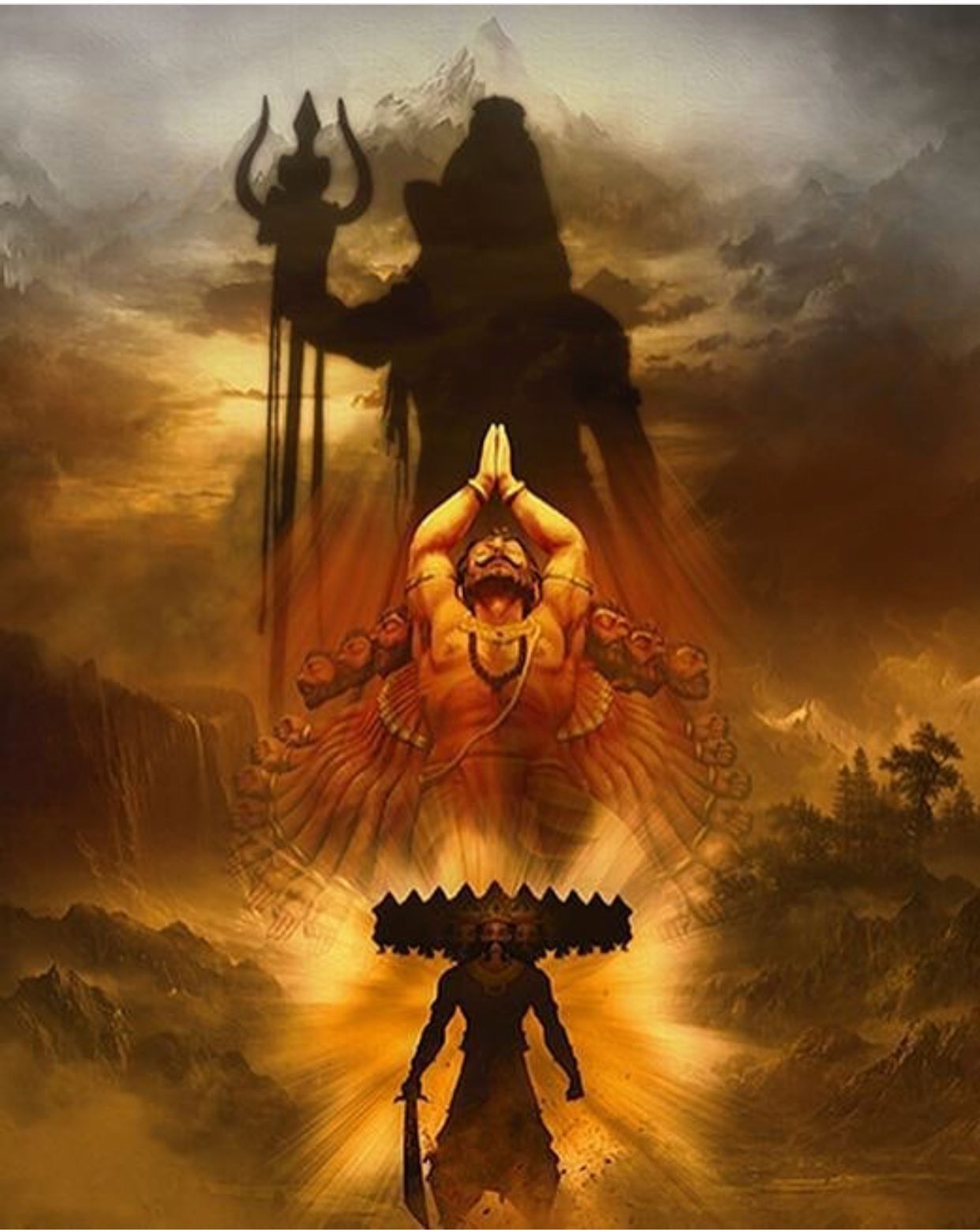Ravana, a prominent figure in Hindu mythology, was a complex character whose story carries both shades of greatness and moral flaws. Born to the sage Vishrava and the demon princess Kaikesi, Ravana was a powerful and learned being with ten heads and twenty arms.
At a young age, Ravana's thirst for knowledge and power led him to perform intense penance to please Lord Shiva. Impressed by his devotion, Shiva granted him immense boons, including invincibility against gods and celestial beings.
Ravana became the mighty ruler of Lanka, a kingdom known for its opulence and advanced civilization. His intelligence and mastery over various arts and sciences earned him respect and fear among both gods and mortals.
However, Ravana's hubris and ego became his greatest downfall. He harbored a deep resentment towards Lord Rama, an incarnation of Lord Vishnu, who he perceived as a threat to his power. In a fateful turn of events, Ravana abducted Sita, Rama's wife, hoping to possess her beauty and weaken his adversary.
This act of kidnapping ignited a great conflict, the Ramayana, in which Rama, along with his loyal allies including Hanuman and the monkey army, waged war against Ravana's forces. The epic battle showcased Ravana's formidable strength, as he singlehandedly fought against Rama and his allies, but ultimately he was defeated by Rama's divine prowess.
In his final moments, Ravana realized the consequences of his actions and the true nature of his arrogance. He acknowledged Rama's greatness and sought his forgiveness. Rama, in his benevolence, granted Ravana salvation and liberation from the cycle of birth and death.
The story of Ravana serves as a cautionary tale, highlighting the dangers of unchecked pride, ego, and the consequences of acting against dharma (righteousness). While Ravana possessed extraordinary abilities and knowledge, his downfall was a result of his moral weaknesses.
Despite his flaws, Ravana's character carries certain admirable qualities. His devotion to Lord Shiva, his patronage of the arts, and his unmatched courage are aspects that cannot be overlooked. The story of Ravana teaches us the importance of introspection, humility, and the need to align our actions with righteousness.
In Hindu culture, Ravana is often depicted as a symbol of evil due to his actions, but his complexity serves as a reminder that even great beings can succumb to their vices. The story of Ravana invites us to reflect upon our own flaws, seek redemption, and strive for personal growth and moral integrity.

